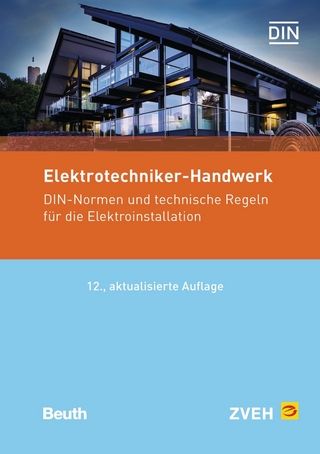
Handbook of Materials Science, Volume 1
Springer Verlag, Singapore
978-981-99-7144-2 (ISBN)
Dr. Raghumani S. Ningthoujam obtained M.Sc. in Chemistry from Manipur University in 1994. He was awarded Ph.D. in Chemistry from IIT Kanpur in area of superconducting, electron transport and magnetic properties of nanostructured transition metal nitrides in 2004. He joined Bhabha Atomic Research Centre (BARC), Mumbai, as Scientific Officer (D) in 2006 after completion of Dr. K. S. Krishnan Fellowship. Presently, he is working in area of Luminescent and Magnetic Nanomaterials and their applications in sensors, imaging, diagnosis and therapy. He did Post-doctoral Fellowship at University of Victoria, Canada, in the area of quantum dots. Presently, he is Scientific Officer (G) at Chemistry Division, BARC, Mumbai. He is recognized for Guideship of Ph.D. at Homi Bhabha National Institute (HBNI), Mumbai, and Mumbai University, Mumbai. Many research scholars and students finished their projects under his guidance. He has published about 166 papers in the refereed journals, 6 reviewarticles and 13 book chapters and edited 3 books. In recognition of his significant contributions to the chemical science, he has been awarded DAE-Scientific & Technical Excellence Award (2012), Young Achiever Award, SSPS (2010), Chemical Research Society of India’s Bronze Medal (2022) and Materials Research Society of India’s Medal (2022). He has been elected as Fellow, The National Academy of Sciences, India (FNASc), in 2016 and Fellow, Maharashtra Academy of Sciences (FMASc), in 2013. Dr. A. K. Tyagi obtained his M.Sc. (Chemistry) degree in 1985 from Meerut University, Meerut and joined BARC Training School, Mumbai in the same year. After completing one year orientation course in Nuclear Science and Technology, he joined Chemistry Division, Bhabha Atomic Research Centre (BARC), Mumbai in 1986. Presently, he is Director, Chemistry Group, BARC, Mumbai, Distinguished Scientist, DAE and a Senior Professor of Chemistry at Homi Bhabha National Institute (HBNI), Mumbai. His research interests are in the field chemistry of materials, which includes functional materials, nanomaterials, nuclear materials, energy materials, metastable materials, hybrid materials and structure-property correlation. He has published more than 650 papers in journals, several books and has supervised 35 PhD students. He was awarded PhD by Mumbai University, Mumbai in 1992. He did postdoctoral research at Max-Planck Institute for Solid State Research (MPI-FKF), Stuttgart, Germany during 1995-96. Subsequently, he regularly visited MPI-FKF, Stuttgart as a visiting scientist. In addition, he has also visited Institute of Superior Technology, Portugal; Institute for Chemical Process and Environmental Technology, Ottawa, Canada; Dalhousie University, Halifax, Canada; Moscow State University, Moscow, Russia; Institute for Materials, Nantes, France; University of Malay, Malaysia; National Institute of Materials Science, Tsukuba, Japan; National Universityof Singapore, Singapore; Royal Institute of Technology, Stockholm, Sweden; Rice University, Houston, USA; Shanghai, China; University of Valencia, Valencia, Spain; Weizmann Institute of Science, Israel; University of Queensland, Brisbane, Australia; US-Air Force Research Lab, Dayton, USA, Institute for Studies of Nanostructured Materials, Palermo, Italy and iThemba Labs, Cape Town, South Africa. In recognition to his significant contributions to the field of chemistry of materials, he has been conferred with many prestigious awards, such as Dr. Lakshmi award by the Indian Association of Solid State Chemists and Allied Scientists (2001); Rheometric Scientific-Indian Thermal Analysis Society Award (2002); Medal of Indian Nuclear Society (2003); Materials Research Society of India’s Medal (2005); Chemical Research Society of India’s Bronze Medal (2006); DAE-Homi Bhabha Science and Technology Award (2006); IANCAS-Dr. Tarun Datta Memorial Award (2007); Rajib Goyal Prize in Chemical Sciences (2007); RD Desai Memorial Award from Indian Chemical Society (2008) and DAE-SRC Outstanding Research Investigator Award (2010); CRSI-Prof. CNR Rao National Prize in Chemical Sciences (2012); ISCB Award for Excellence in Chemical Sciences (2013); MRSI-ICSC Materials Science Senior Award (2014); Coastal Chemical Research Society’s Award (2014); Platinum Jubilee Lecture Award in Materials Science from Indian Science Congress Association (2015); Metallurgist of the Year Award (2017), from Ministry of Steel, Government of India; Chemical Research Society of India’s Silver Medal (2018); Materials Research Society of India’s Prof. CNR Rao Prize in Advanced Materials (2018); JNCASR’s National Prize in Solid State and Materials Chemistry (2018) and Acharya PC Ray Memorial Award from Indian Science Congress Association (2020). He is an elected Fellow of the Indian National Science Academy (FNA), Indian Academy of Sciences (FASc); National Academy of Sciences,India (FNASc); Indian National Academy of Engineering (FNAE); Maharashtra Academy of Sciences (FMASc); Royal Society of Chemistry, UK (FRSC); Asia Pacific Academy of Materials; World Academy of Ceramics, African Academy of Sciences and UNESCO- The World Academy of Sciences (FTWAS).
Basic Concept of Optical Materials: Classification, Properties and Applications.- Photo-luminescent Materials: Down-conversion, Quantum Cutting, Up-conversion, Photo-avalanche, Core@shell Nanostructures.- Advances in Plasmonic Substrate-coupled Fluorescence.- Lanthanide-doped Materials for Optical Applications.- Defect-modulated Trap Engineering of Long Persistent and Mechanoluminescence Phosphors for Advanced Applications.- Optical Materials for Sensing Radioactive Elements.- Triarylamines – a Versatile Molecular Building Block for Optoelectronic Materials.- Lanthanide Ions Doped Luminescent Nanomaterials for Anticounterfeiting.- Thermally Activated Delayed Fluorescence in Metal Free Small Organic Materials: Understanding and Applications in OLEDs.- Luminescent Materials for Radiation Dosimetry.- Carbon Materials Based Nanoscale Optics and Plasmonics.- Developments of Random Laser: Fundamentals and Applications.- BODIPY: A Unique Dye for Versatile Optical Applications.- Dye DecoratedFunctional Materials.- Dimensional Engineering of 2D/3D Perovskite Halides for an Efficient and Stable Solar Cells.
| Erscheinungsdatum | 22.11.2023 |
|---|---|
| Reihe/Serie | Indian Institute of Metals Series |
| Zusatzinfo | 314 Illustrations, color; 136 Illustrations, black and white; XIX, 751 p. 450 illus., 314 illus. in color. |
| Verlagsort | Singapore |
| Sprache | englisch |
| Maße | 155 x 235 mm |
| Themenwelt | Technik ► Elektrotechnik / Energietechnik |
| Technik ► Maschinenbau | |
| Schlagworte | Dissociation of Chemical Bonds • Ejection of Electron • Formation of Free Radicals • Isomerization • nanomaterials • Optical Materials • Transmission of Light |
| ISBN-10 | 981-99-7144-6 / 9819971446 |
| ISBN-13 | 978-981-99-7144-2 / 9789819971442 |
| Zustand | Neuware |
| Haben Sie eine Frage zum Produkt? |
aus dem Bereich


